 We went back to Taiwan for another 3 years when I was 10. The week before we left for Taiwan someone gave me the The Black Stallion and I read half of it late at night when I was supposed to be saving it to read on the plane.
We went back to Taiwan for another 3 years when I was 10. The week before we left for Taiwan someone gave me the The Black Stallion and I read half of it late at night when I was supposed to be saving it to read on the plane.
As soon as we got to Taiwan, the kindest missionary lady, Donna Camp, took me out to the bookstore and told me to pick out some books. I promptly got the next few in the Black Stallion series, but I had to wait till I got back to a U.S. library to read the rest. Read them to my mom:


Loved the Sarah and Katie story (illustrated by Trina Schart Hyman!) I found in the waiting room of the Seventh Day Adventist clinic (the one all the Westerners went to at the time):

A few floors down in the same decrepit building was the YWCA where we sometimes got old books for next to nothing. I think that's where I got the Peggy books, by Dorothy Martin, and I would love to know how they got to Taiwan because I read all of them over and over aloud to myself in my room at my desk. The look of the print on the page and the feel of the words slipping off my tongue was intoxicating:


I can only find pics of two of the books and these are the covers I knew.
A New Life for Peggy
More Answers for Peggy
A Mystery Solved for Peggy
Hopes Fulfilled for Peggy
Heart's Surrender for Peggy
Wider Horizons for Peggy
Big Red by Jim Kjelgaard was another YWCA book I loved so much I read it to my mom and dad over breakfasts:
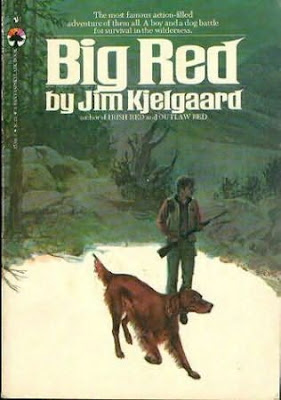
Pilgrim's Progress 天 路 歷 程 by John Bunyan [e-book and audio] was another YWCA book I read and re-read because at 10 I was in love with logic, and Christian's conversations with all those he met along the road were a mental massage:
Born Free I read to my mom and dad. More amazing pictures and background:
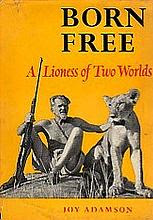
All Things Bright and Beautiful by James Herriot
The unforgettable true stories of James, Tristan and Siegfried. My mom read it to my Dad (and by extension all of us) at mealtimes, and I continued falling in love with Britain sight unseen:

Good Wives 好 妻 子 (the sequel to Little Women) I also read to my Mom. Not the cover I remember, but it's just as beautiful:
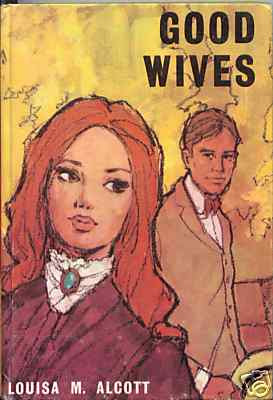
Then Calvert (the curriculum I was being homeschooled with) sent me King Arthur 亞 瑟 王 and somehow I got ahold of Grimm's Fairytales 格 林 童 話 [e-book and audio]. I was particularly enamored of the gruesome "Juniper Tree" story and my dad for years after complained about Calvert getting me started on fantasy, although I had devoured Bullfinch's Mythology in a church library a couple years previously.
Hans Christian Anderson fairytales. Here's a gorgeous cover illustrating one of my favorites, The Tin Soldier, (I cried over it). My other favorite was The Little Mermaid (which I also cried over).

Every Saturday and Sunday (after church) my dad took one of us three kids to town with him and let the child whose turn it was choose where to go. There was hardly any English fiction in Kaohsiung's public libraries at that time, so my dad and I always went to read at one of the two English bookstores in Kaohsiung.
My father bought me an old musty Norton Critical Edition of Jane Eyre 簡 愛 [e-book and audio], which was another one of my favorite books to read aloud to myself over and over at my desk:

When I was looking for a cover to represent Jane Eyre and saw this I thought: Lovely cover, but what does it have to do with the story, beyond referencing the secret of Mr. Rochester's mad wife being locked away?
Then I remembered the story is all about morality, what Jane Eyre feels free to do or not do... [More ...]
For instance, in the most pivotal scene in the book when Rochester is begging her to be his mistress, her morality will not open this door to be bad, will not loose where God has not loosed.
Terrible moment: full of struggle, blackness, burning! Not a human being that ever lived could wish to be loved better than I was loved; and him who thus loved me I absolutely worshipped: and I must renounce love and idol. One drear word comprised my intolerable duty—“Depart!”At the second most pivotal scene in the book when her cousin St. John is demanding that she enter into a loveless marriage to become a missionary, she narrowly escapes the temptation to be "too good" or pseudo-good, to bind where God has not bound:
................................................
“One instant, Jane. Give one glance to my horrible life when you are gone. All happiness will be torn away with you. What then is left? For a wife I have but the maniac upstairs: as well might you refer me to some corpse in yonder churchyard. What shall I do, Jane? Where turn for a companion and for some hope?”
“Do as I do: trust in God and yourself. Believe in heaven. Hope to meet again there.”
“Then you will not yield?”
“No.”
“Then you condemn me to live wretched and to die accursed?” His voice rose.
“I advise you to live sinless, and I wish you to die tranquil.”
“Then you snatch love and innocence from me? You fling me back on lust for a passion—vice for an occupation?”
“Mr. Rochester, I no more assign this fate to you than I grasp at it for myself. We were born to strive and endure—you as well as I: do so. You will forget me before I forget you.”
“You make me a liar by such language: you sully my honour. I declared I could not change: you tell me to my face I shall change soon. And what a distortion in your judgment, what a perversity in your ideas, is proved by your conduct! Is it better to drive a fellow-creature to despair than to transgress a mere human law, no man being injured by the breach? for you have neither relatives nor acquaintances whom you need fear to offend by living with me?”
This was true: and while he spoke my very conscience and reason turned traitors against me, and charged me with crime in resisting him. They spoke almost as loud as Feeling: and that clamoured wildly. “Oh, comply!” it said. “Think of his misery; think of his danger—look at his state when left alone; remember his headlong nature; consider the recklessness following on despair—soothe him; save him; love him; tell him you love him and will be his. Who in the world cares for you? or who will be injured by what you do?”
Still indomitable was the reply—“I care for myself. The more solitary, the more friendless, the more unsustained I am, the more I will respect myself. I will keep the law given by God; sanctioned by man. I will hold to the principles received by me when I was sane, and not mad—as I am now. Laws and principles are not for the times when there is no temptation: they are for such moments as this, when body and soul rise in mutiny against their rigour; stringent are they; inviolate they shall be. If at my individual convenience I might break them, what would be their worth? They have a worth—so I have always believed; and if I cannot believe it now, it is because I am insane—quite insane: with my veins running fire, and my heart beating faster than I can count its throbs. Preconceived opinions, foregone determinations, are all I have at this hour to stand by: there I plant my foot.”
..................................................
That night I never thought to sleep; but a slumber fell on me as soon as I lay down in bed. I was transported in thought to the scenes of childhood: I dreamt I lay in the red-room at Gateshead; that the night was dark, and my mind impressed with strange fears. The light that long ago had struck me into syncope, recalled in this vision, seemed glidingly to mount the wall, and tremblingly to pause in the centre of the obscured ceiling. I lifted up my head to look: the roof resolved to clouds, high and dim; the gleam was such as the moon imparts to vapours she is about to sever. I watched her come—watched with the strangest anticipation; as though some word of doom were to be written on her disk. She broke forth as never moon yet burst from cloud: a hand first penetrated the sable folds and waved them away; then, not a moon, but a white human form shone in the azure, inclining a glorious brow earthward. It gazed and gazed on me. It spoke to my spirit: immeasurably distant was the tone, yet so near, it whispered in my heart—
“My daughter, flee temptation.”
“Mother, I will.”
“Consent, then, to his demand is possible: but for one item—one dreadful item. It is—that he asks me to be his wife, and has no more of a husband’s heart for me than that frowning giant of a rock, down which the stream is foaming in yonder gorge. He prizes me as a soldier would a good weapon; and that is all. Unmarried to him, this would never grieve me; but can I let him complete his calculations—coolly put into practice his plans—go through the wedding ceremony? Can I receive from him the bridal ring, endure all the forms of love (which I doubt not he would scrupulously observe) and know that the spirit was quite absent? Can I bear the consciousness that every endearment he bestows is a sacrifice made on principle? No: such a martyrdom would be monstrous. I will never undergo it. As his sister, I might accompany him—not as his wife: I will tell him so.”
I looked towards the knoll: there he lay, still as a prostrate column; his face turned to me: his eye beaming watchful and keen. He started to his feet and approached me.
“I am ready to go to India, if I may go free.”
........................................................................
“You cannot—you ought not. Do you think God will be satisfied with half an oblation? Will He accept a mutilated sacrifice? It is the cause of God I advocate: it is under His standard I enlist you. I cannot accept on His behalf a divided allegiance: it must be entire.”“Oh! I will give my heart to God,” I said. “You do not want it.”
....................................................................
... I looked at his features, beautiful in their harmony, but strangely formidable in their still severity; at his brow, commanding but not open; at his eyes, bright and deep and searching, but never soft; at his tall imposing figure; and fancied myself in idea his wife. Oh! it would never do! As his curate, his comrade, all would be right: I would cross oceans with him in that capacity; toil under Eastern suns, in Asian deserts with him in that office; admire and emulate his courage and devotion and vigour; accommodate quietly to his masterhood; smile undisturbed at his ineradicable ambition; discriminate the Christian from the man: profoundly esteem the one, and freely forgive the other. I should suffer often, no doubt, attached to him only in this capacity: my body would be under rather a stringent yoke, but my heart and mind would be free. I should still have my unblighted self to turn to: my natural unenslaved feelings with which to communicate in moments of loneliness. There would be recesses in my mind which would be only mine, to which he never came, and sentiments growing there fresh and sheltered which his austerity could never blight, nor his measured warrior-march trample down: but as his wife—at his side always, and always restrained, and always checked—forced to keep the fire of my nature continually low, to compel it to burn inwardly and never utter a cry, though the imprisoned flame consumed vital after vital—this would be unendurable.“St. John!” I exclaimed, when I had got so far in my meditation.
“Well?” he answered icily.
“I repeat I freely consent to go with you as your fellow-missionary, but not as your wife; I cannot marry you and become part of you.”
“A part of me you must become,” he answered steadily; “otherwise the whole bargain is void. How can I, a man not yet thirty, take out with me to India a girl of nineteen, unless she be married to me? How can we be for ever together—sometimes in solitudes, sometimes amidst savage tribes—and unwed?”
“Very well,” I said shortly; “under the circumstances, quite as well as if I were either your real sister, or a man and a clergyman like yourself.”
“It is known that you are not my sister; I cannot introduce you as such: to attempt it would be to fasten injurious suspicions on us both. And for the rest, though you have a man’s vigorous brain, you have a woman’s heart and—it would not do.”
“It would do,” I affirmed with some disdain, “perfectly well. I have a woman’s heart, but not where you are concerned; for you I have only a comrade’s constancy; a fellow-soldier’s frankness, fidelity, fraternity, if you like; a neophyte’s respect and submission to his hierophant: nothing more—don’t fear.”
“It is what I want,” he said, speaking to himself; “it is just what I want. And there are obstacles in the way: they must be hewn down. Jane, you would not repent marrying me—be certain of that; we must be married. I repeat it: there is no other way; and undoubtedly enough of love would follow upon marriage to render the union right even in your eyes.”
“I scorn your idea of love,” I could not help saying, as I rose up and stood before him, leaning my back against the rock. “I scorn the counterfeit sentiment you offer: yes, St. John, and I scorn you when you offer it.”
.......................................................................
“What makes you say he does not love you, Jane?”
“You should hear himself on the subject. He has again and again explained that it is not himself, but his office he wishes to mate. He has told me I am formed for labour—not for love: which is true, no doubt. But, in my opinion, if I am not formed for love, it follows that I am not formed for marriage. Would it not be strange, Die, to be chained for life to a man who regarded one but as a useful tool?”
“Insupportable—unnatural—out of the question!”
“And then,” I continued, “though I have only sisterly affection for him now, yet, if forced to be his wife, I can imagine the possibility of conceiving an inevitable, strange, torturing kind of love for him, because he is so talented; and there is often a certain heroic grandeur in his look, manner, and conversation. In that case, my lot would become unspeakably wretched. He would not want me to love him; and if I showed the feeling, he would make me sensible that it was a superfluity, unrequired by him, unbecoming in me. I know he would.”
.........................................................
I was tempted to cease struggling with him—to rush down the torrent of his will into the gulf of his existence, and there lose my own. I was almost as hard beset by him now as I had been once before, in a different way, by another. I was a fool both times. To have yielded then would have been an error of principle; to have yielded now would have been an error of judgment.
In the first scene, her morality keeps her from being bad, from loosing where God has not loosed. In the second scene, she narrowly escapes being "too good" or pseudo-good, binding where God has not bound.
So the picture of a key on the cover is very apt.
My Dad also bought me the The Complete Sherlock Holmes 福尔摩斯探案全集 and I read it straight through (probably over several days), one of those fantastic experiences like a summer of being in love:
[e-book: adventures, return, memoirs]
[audio: adventures, return, memoirs]

(Spoiler Alert!) I still remember my grief when I reached the middle where Sherlock Holmes "dies", I put the book down and cried on the floor for 10 minutes before I thought of picking it up again and reading the next story, and the wonder as I realized, silly me how could he possibly die halfway through a very thick book. Of course the people who read Sherlock Holmes when it was first published had to wait 10 years to get that next story where you find out he hasn't died.
I sobbed over A Tale of Two Cities 雙城記 [e-book and audio] and read the whole book aloud to my Dad:

I sobbed even longer over A Connecticut Yankee in King Arthur's Court 亞 瑟 王 朝 廷 上 的 美 國 (by Mark Twain 馬克吐溫) which I read to my mom (and we both cried) and then to my dad: [e-book and audio]

Very first sob story: My earliest memory of a movie was 3 years old at a drive-in watching the The Fox and the Hound 狐 狸 與 獵 狗 and sobbing on my Dad's shoulder. My mom says I started crying at the beginning of the movie and didn't stop until the end. I used to think the movie had warped my brain, but my little sister saw it and laughed all the way through. Of course she has Down Syndrome, but it could just be that different personalities respond to the same things differently.
I also read and re-read The Prince and the Pauper 王子與貧兒 by Mark Twain, and imagined myself into every single scene. [e-book] Some day I'll find the movie... +/-


I was still being homeschooled with the Calvert curriculum and they sent a whole set of beautifully illustrated classics, including A Tale of Two Cities 雙城記, Treasure Island 金銀島 , Kidnapped 綁架, Pride and Prejudice 傲慢與偏見, and Wuthering Heights 呼嘯山庄; all of which I read to my mom:
Kidnapped 綁架 e-book

Treasure Island 金銀島 e-book and audio

This is more like the cover I remember:

Pride and Prejudice 傲慢與偏見 [e-book and audio] was my favorite Jane Austen for many years:

But when I discovered Wuthering Heights 呼嘯山庄 [e-book] it replaced even my beloved Jane Eyre 簡愛 because of its intensity and all the moors in the book. My imagination was still vivid and imprinting everything I read as pseudo memories:

We were living in the south of Kaohsiung near the airport in what often reminded me of slums. Facing the head of our alley was a movie theater with a three story high billboard with a topless lady. (Eventually they gave her a wisp of gauze and a year later a bikini.) The front of our apartment looked out into a narrow concrete alley. The back of our apartment overlooked a weedy lot where everyone threw their garbage. We had a tiny balcony and after Wuthering Heights I often sat up on top of the dryer looking out at the rust-stained buildings and aching for moors.
A year or so later, circumstances would take us to England for two weeks, and it was completely otherworldly, from the language and the weather, to their living rooms and sinks, to scones and Dartmoor and tea and I discovered The Lord of the Rings there, but more on that later.
20 years later I would finally be walking in Skye, and with every step I wanted to lie down on the heath, fold my hands and give up the ghost. It was like a deep vibration through my chest saying I had lived long enough to see this, I could die happy without accomplishing anything else.
I love, love, love, love, LOVED The Man Who Was Thursday by G. K. Chesterton [e-book or audio], which I promptly read to my Mom and then my Dad. A year later after discovering The Lord of the Rings (story in the next section), if anybody had asked me who my favorite authors were, it would have been the triumvirate of C.S. Lewis, J. R. R. Tolkien and G. K. Chesterton, with Wuthering Heights an honorable mention:

This was also when I discovered Tintin:
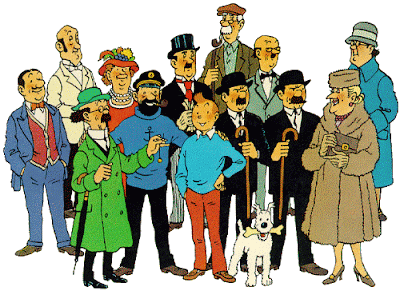
I'm indebted to Tim Alexander because he had just come to Taiwan to teach English and got me my first job at the age of 10 or 11 as assistant English teacher once a week in a public school. Ended up with a private tutoring class after that to a boy named Elmo who owned a stash of Tintin comics. He and I both hated the class which was him repeating after me through a picture dictionary in excruciating boredom; (my imagination was fresh enough to soak up story atmosphere like a sponge, but not mature enough to start springboarding sentences off my favorite ideas). When his busy mom was often called away by the phone we would plunge into the hypnotic world of our respective Tintin comics (he had both Chinese and English versions). Wonderful were the days when she was too busy for class but still let me in to read the comics. I lived for losing myself in Tintin comics, and I bought an SLR camera with the money I earned.
Tintin has been translated into about as many languages as The Lord of the Rings:








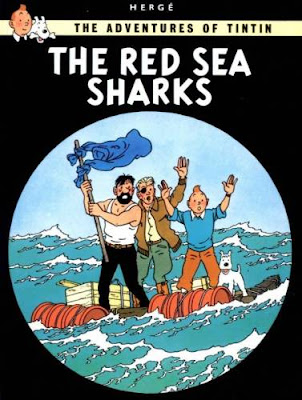

I can not remember which version of Seabiscuit 奔 騰 年 代 (true story of a famous horse) I read so I've just used this photo off the web, but it was sent to me by the St. John's in Lake City, Florida who (bless their hearts) often sent me boxes of books from the States:

Winston Churchill's A History of the English Speaking Peoples four-in-one volume:

At mealtimes my mom read my dad the true story of The Inn of Sixth Happiness by Alan Burgess:

And I read my dad How To Win Friends and Influence People 人 性 的 弱 點 by Dale Carnagie ...

as well as Fighting Angel - Pearl Buck's story of her father:

At some point I read The Hiding Place (true story of Corrie Ten Boom) to my mom:

The Liberation of One, by Romauld Spasowski, was so good my mom read it to us around the supper table for weeks:

Wild Swans 鴻 had a similar impact on me years later, but where that book took place in China, The Liberation of One takes place in Poland.
Spasowski's father was a sincere atheist who wanted to be "a citizen of the world" and committed suicide when he saw the real face of his beloved Communism. It is the story of Romauld Spasowski, from his travels across the breadth of Poland (when Poland was being squeezed between Germany and Russia) to volunteer to join the Soviet "liberators" and barely escaping with his life, to becoming ambassador in the puppet state that Poland became. Spasowski's son also committed suicide because he could not take what his father was doing.

The Oak and the Calf 牛犢頂橡樹, autobiography of the famous Russian writer Aleksandr Solzhenitsyn 索爾仁尼琴 who lived through the Gulag and composed and memorized an entire novel (Cancer Ward) in his head before he had a chance to get out of prison and write it down.
The next few decades (?) he spent continually finding wily ways to convince the government publishing company who recognized his genius to actually publish his books instead of just paying for them and stashing them away in the safe by the well-intentioned editor Tvardosky who was waiting for a more politically correct time. He also got his books out by by "samizdat" (an underground network of writers and readers).
He was eventually awarded the Nobel Prize which he refused to go accept in person because he knew Russia would never let him back in once he left. He was eventually arrested and put on a plane for West Germany where he received a hero's welcome, and later went to live in Vermont. However, in recent years he went back to Russia, and most recently he died.
Woohoo! Can you imagine having so much impact (for good) that your government has to put you on a plane out of the country?
Here is a an excerpt of his tongue in cheek humor ... MORE +/-
... We wait in the apartment. An hour passes. My relatives laugh at me: did you really believe they would come? They're not such fools as you think. The windows look down on a public garden, and I go out for a stroll with a friend, asking the occupant of the apartment to let me know, by opening a particular window, if they come. But we are so absorbed in our conversation that I forget to keep an eye on it, until suddenly there is a bandit whistle that could be heard a block away. (What must the poor customs officers have thought? That they had walked into an ambush ... with all their documents ...) I hurried back.
"I'm sorry I've kept you waiting."
They were all politeness. They had taken off their raincoats but remained standing; they were scared after that whistle. Any minute now they themselves might be tied up!
There was a major, a man of sixty or so, with a slim, apparently empty briefcase, who may well have been a genuine customs officer. And a youngish lieutenant, who was undoubtedly a KGB man.
We sat down and conversed for half an hour - and no one seemed to notice the glaring item of contraband carelessly left lying on the couch beside me - the Mondadori edition of Cancer Ward, which had just been brought to me.
The younger man: "Let's shut the door; we may be disturbing somebody."
(Two of my henchmen are listening at the door, of course!)
I: "What do you mean? Whom could we disturb? there are no strangers here."
The older man: "There are, after all, exceptional cases in which literature and the customs have business with eath other."
He opens his slender briefcase, extracts from it a slender folder and hands me with malicious eagerness my "Record," but I realize at first squint that it has not been typed on my machine, or on any we have ever used.
I: "The contents of this are mine, but the format is not; how did it come into your hands?"
"It was intercepted at the frontier."
I (very reproachfully): "At the frontier?" (Shaking my head) " It was intended for home consumption."
He: "Just so!"
A pause. Both parties dismayed. i know noting at all, about Strada or anyone else. I mustn't make a false move. Mustn't touch a piece unless I mean to move it.
This time, the older man deftly picks his own pocket and with exquisite courtesy hands me an envelope.
"And this?"
Four eyes bore into me. But I am not blind: the writing on the envelope is mine, and the return address is mine in Ryazan. So much the better: it shows that I have made no attempt at concealment. But now I must make my move quickly. It will look unnatural if I don't mention the name myself.
"You mean you took this from Vittorio Strada? Good heavens, you've done it now! What made you do a thing like that!"
The older man (with dignity): "We were observing normal regulations. The envelope was unsealed, you see. Now, had it been sealed, under no circumstances would we have opened it."
"What would you have done then?"
"We would have told the passenger to mail it in our presence."
(And of course, letters go down a chute from the mailbox to their room at the back.)
"... But since it's unsealed we take a look, and when we see what sort of thing it is, and that it's from you ... we think we'd better ask about it...."
I flourish the "Record" at them.
"Tell me, have you studied this document?"
The older man (less confidently): "Er - yes."
"Are there many people working there with you? I should like as many people as possible to know about it. So that you will be aware of what is going on in literature."
The major tries to reassure me. "We-e-ell, not all of us have read it ..." and succeeds, though not in the way he had intended. Obviously, eager hands have reached for it.
"Right, then." I move squarely in to the attack. "Do you realize now what is going on? dirty work of some sort. A bunch of shady characters have sold a book of mine abroad. I am now trying to put a stop to this prostitution of Soviet literature."
"Why do you call it prostitution?"
"What would you call it? A Soviet work is sold, and appears over there in a garbled form - what other word is there for it? And I am not allowed to protest! I write to one paper, then to another; they promise to publish my letters, but they don't! So then I protest to Le Monde, and send my letter registered, with a prepaid acknowledgment slip, but it is intercepted...."
"How do you know that it was intercepted?"
"If the acknowledgment slip doesn't come back after a month, what else can I think? ... I put my hopes in Unita - but for some reason it doesn't appear in Unita. I can see why now! I can see the whole thing! What have you done? ... Whose game are you playing? ... You must try and set things straight immediately, and send this letter on to Vittorio Strada with apologies, so that they can publish it while there's still time."
He holds his ground. "No, I'm sorry. We have our regulations...."
I (smoothly and sympathetically, as though this were an ordinary conversation between Soviet citizens and fellow Party members):
"Comrades! I don't want to have to call you bureaucrats - I'm sure you know what I mean. I shouldn't like to think so badly of you. Yes, you have your duty to do, but you are also citizens, members of our society! Surely you don't take that attitude - minding your own business and ignoring what goes on next door. You have your regulations, well and good; but what about the postal regulations? Are they binding, or not? If so, why does a letter dispatched in accordance with post office regulations fail to arrive? All right - I won't invoke the Constitution. ... But where's the sense in it? If the letter could benefit our country and our literature in some way, what was the point in holding it up? Nothing could be more stupid...."
"How the post office works is no concern of ours."
"Not as citizens? You must concern yourself with all that goes on around you. A letter attacking pirate publishers was on its way to an Italian Communist newspaper. It would have been useful to the Italian Communist Party! Why did you hold it up? Merely because of the general revulsion which my name inspires?"
The elderly customs officer suddenly smiles as though apologizing for his epaulets, as though he has taken them off for a moment. (The expression he will wear when he tells his family all about it this evening?)
"Not in everyone. Not in everyone."
To avoid getting him into trouble with his young companion, I ignore the amendment.
"And now three weeks have been wasted!"
"Because you wouldn't come when we sent for you."
"Come on, now - was that the way to do it?" I find their summons and shove it at them. "'You will report to ...' Who uses that sort of language? The police, of course, when they order someone to report. I know of one old woman who got a notice like that and very nearly died - then it turned out that it was about her husband's rehabilitation: a bit of good news for her!"
The major is embarrassed. "Well, we couldn't come right out with it in a letter...."
I burst out laughing. "In case it was intercepted? In case somebody read it? But if you weren't going to intercept it, who else would?"
The customs officer makes one last effort to return to his brief, and asks, as though by the way, as though it doesn't really matter:
"Did you hand it to Vittorio Strada yourself?"
"No, I myself didn't see him." (I had never seen him in my life.)
Still more casually and unemphatically, he asks:
"Who passed it on for you, then?"
This most innocent of questions is just the one I was waiting for!
Running my finger over the form they had sent me, I ask with a sarcastically sweet smile:
"Tell me, please, is it true what it says here - that you are from the Ministry of Foreign Trade?"
"Of course," they say, puzzled.
I loll back on the sofa, to show how much at my ease I am with these nice people.
"Well, then - isn't this rather a lot of questions for the Ministry of Foreign Trade to be asking?"
They are both quick to catch on.
"We're not committee men! Don't imagine we're Committee men!"
Heavens, what a name for it! They couldn't say "KGB men."
Let's spell it out fully, then: "That being so, the rest cannot be of any interest to you."
Our conversation is coming to an end. In perfect mutual comprehension. But I must just insist ...
"I must insist ... I beg you to send the letter on to Vittorio Strada, as soon as possible! ... At this very time our representatives are on the way to a meeting of COMES in Rome, and if this letter had been published it would have been so much easier for them to answer questions."
"We'll put a report in, of course.... We can't do anything ourselves."
And finally, in my most offhand manner:
"The letter isn't stamped. Should it be? I can stick one on now, if you like."
And they leave rejoicing, apparently well satisfied with our heart-to-heart talk, and without inviting me to sign a formal statement, or uttering any threats.
That's the way to talk to them! My witnesses were most amused.
A few days later, Gulag was finished and photographed, the film was rolled up into a capsule, and on the same day (2 June) I got some startling news.
The First Circle had come out in the West! Only in a small Russian-language edition for a start, to establish copyright, but the English version might appear in a month or two. and I was also offered an opportunity to send off Gulag in a few days' time.
We stretched luxuriously because our work was done! An at once the bell rang out. That very day, and almost at the same hour! No human planning could have brought these events so close together! The bell was tolling. The bell of fate and of history, tolling deafeningly - though as yet none but I could hear it in the tender green woods of June.
(Solzhenitzyn, The Oak and the Calf, p. 213-216)
Read Damian Kelleher's fascinating short review at Amazon.com.

It's hard to believe my parents let me read China: Alive in the Bitter Sea by Fox Butterfield but I did, over and over.

The Jungle Book 森林王子 - Rudyard Kipling e-book
The Second Jungle Book - Rudyard Kipling e-book
I actually got my first brief read of the Jungle Book just before we came back to Taiwan, but the whole book was only properly savored in Taiwan. The chapter that struck deepest was Mowgli's spring running when he's grown up and running sad, wanting something he doesn't know what.
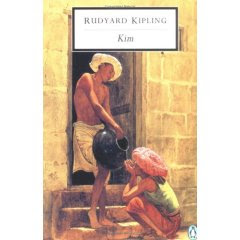
I longed to be as foot-loose and fancy-free as Rudyard's Kipling's Kim 吉 姆) (e-book), a street boy who could melt into any pocket of the hustle and bustle of India.

The Rose and the Ring by William Makepeace Thackeray. A satirically funny fairytale. I read it to my Mom. e-book and audio
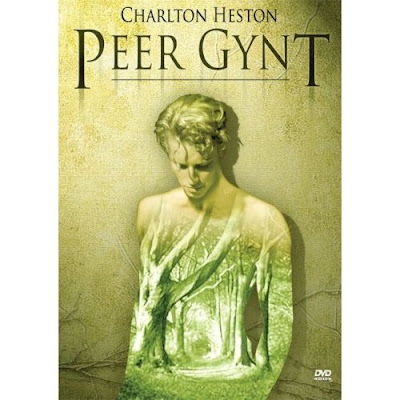
I loved Peer Gynt by Henrik Ibsen. Extremely moving story. The version I read was in a now vintage Children's Illustrated Treasury book or something like that. Couldn't find a book cover I liked so here's a DVD cover.



Edward Short gave me A Wrinkle in Time by Madeleine L'Engle, another book I read to my Mom. When we went back to the States I promptly looked up the sequels, The Wind In the Door and A Swiftly Tilting Planet, which ought to be in the next section but I've listed them here.

The Lady of Stonewycke
Sorry, no picture for this next story: Maupassant's 莫泊桑 short story A Piece of String [e-book] stuck in my head because I was such a logical twit I thought fiercely I would never depend on what other people thought of me, and thought why doesn't the peasant just leave, go to America, wash his hands of the villagers.
Now that I'm older I think why didn't he just state the truth and leave it at that, just raise his eyebrows when people tried to accuse him of stealing, and look calmly at them until they're finished talking, and continue on with whatever it was he wanted to talk with them about. They would soon become the ones frustrated.
Related Posts:
beloved books (1 - 3 years old)
beloved books (4 - 7 years old)
beloved books (8 - 9 years old)
You are here: beloved books (10 - 12 years old)
beloved books (13 - 14 years old)
beloved books (15 - 30 years old)
books (30 years old to present)
books I want to read




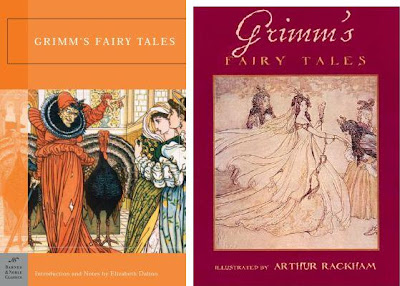
Havent' finished this article...it's late at night again...
ReplyDeletecan't stop telling you "I am also a fan of TinTin!!!"
I watch his animation on Veoh:
http://www.veoh.com/search/videos/q/The+adventures+of+Tintin